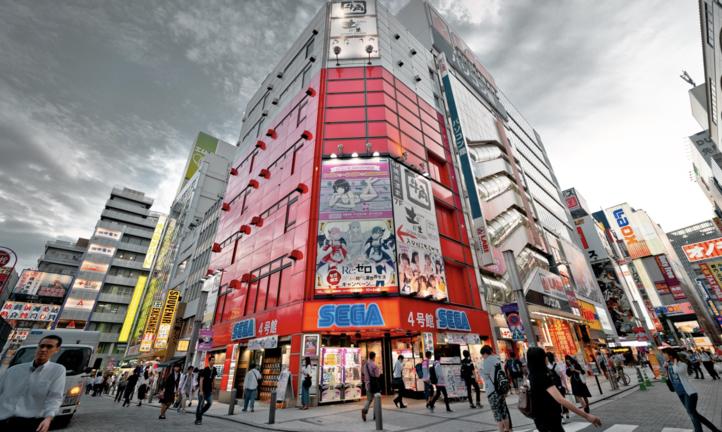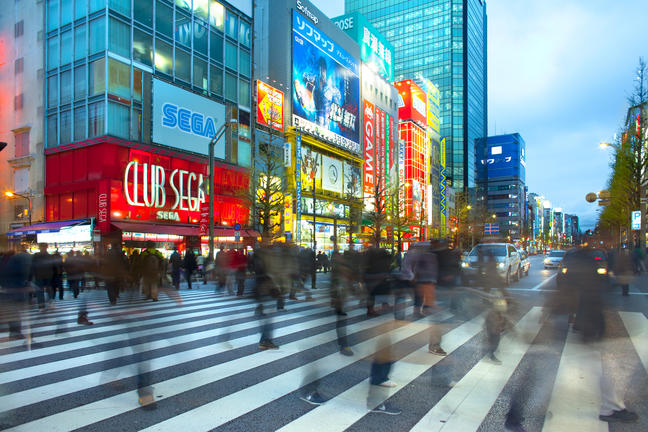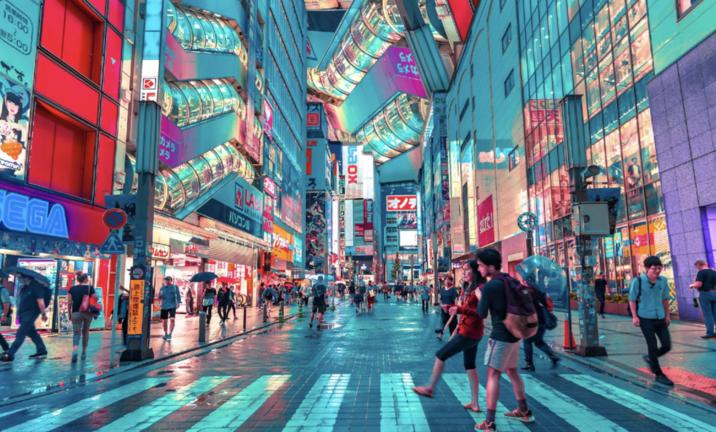Akihabara is Tokyo’s famous “Electric Town”, a bright, slightly bonkers neighbourhood where anime, gaming, gadgets and pop culture take over the streets.
It’s loud, colourful and unapologetically niche, but even if you’re not an avid fan it’s still a fun place to experience a side of modern Japan that feels uniquely Tokyo.
Start around Akihabara Station and wander the main strips of electronics stores, hobby shops and arcades.
The big-name retailers are great for browsing, but the real joy is ducking into smaller buildings where each floor specialises in something different, from retro game cartridges and model kits to trading cards and figurines.
For classic Akihabara atmosphere, spend some time in a multi-level arcade like GiGO or Taito Station.
It’s easy to lose an hour (or three) playing rhythm games, racing simulators, claw machines and photo booths, and it’s all surprisingly welcoming once you jump in.
If you’re curious about tech, Akihabara still delivers. You’ll find everything from camera gear and headphones to niche components and pre-owned electronics, with plenty of staff who are used to visitors and happy to point you in the right direction.
For anime and manga shopping, make a beeline for Mandarake Complex or the larger hobby stores, then keep exploring side streets for second-hand treasure.
If you’re travelling with teenagers, this area is often a highlight, especially for manga, collectibles, capsule toys and the sheer sensory overload.
When you need a breather, head to Kanda Myōjin Shrine, just uphill from Akihabara.
It’s a lovely contrast to the neon, and it’s also known for its modern links to technology and business, with ema (wooden prayer plaques) that often feature anime-style artwork.
Food in Akihabara is part of the fun. You’ll see themed cafés and dessert spots, but you can also keep it simple with ramen, curry or a casual izakaya tucked under the railway tracks.
If you want a more old-Tokyo feel, the neighbouring streets around Kanda and Ochanomizu shift quickly from pop culture to bookshops, instruments and traditional eateries.
Expert tips: Go late morning into early afternoon if you want to browse shops in a calmer mood, as the area gets busier and brighter into the evening.
Keep valuables secure in the crowds, and remember that many smaller shops have narrow aisles, so backpacks are best worn on the front or carried.
If you’re buying figures or collectibles, ask staff about tax-free shopping and keep packaging intact for travel.


